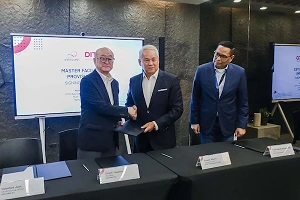Amid the regular news of connectivity initiatives and new satellite deployments targeting remote areas, a recent report from the International Telecommunication Union (ITU), the United Nations agency for digital technologies, reminds us that there’s still a long way to go.
Achieving universal, meaningful internet connectivity by 2030 could require an investment of somewhere between US$2.6 trillion and US$2.8 trillion at current prices, according to the Connecting Humanity Action Blueprint, published recently by the ITU and the Communications, Space & Technology Commission (CST) of the Kingdom of Saudi Arabia.
The report outlines the challenges, projected costs, and collaborative strategies needed to make sure everyone, everywhere, can use the internet, including the estimated one-third of humanity currently offline.
The largest investment component — US$1.5 trillion to US$1.7 trillion — is required for hard infrastructure, including deploying fibre networks in and around urban areas, 4G fixed wireless in rural regions, and satellites in the most remote locations.
Other components include reducing the cost of smartphones and broadband services to guarantee affordability, which is estimated at US$983 billion, and the investments needed to fund large-scale digital literacy initiatives, estimated at US$152 billion.
A much smaller, but the ITU says, still highly significant component is modernising regulations and creating predictable policy environments worldwide. The potential cost of this is estimated at US$600 million.
The ITU estimates that 2.6 billion people are still excluded from the digital world. In 2024, it says, an estimated 93% of the population in high-income countries was using the internet, compared to just 27% in low-income countries.
The Connecting Humanity Action Blueprint says global progress on connectivity has been uneven, with the world's 46 least-developed countries lagging significantly due to financing barriers, limited technical expertise, and unreliable infrastructure.
To address these challenges, the ITU calls for innovative business approaches and renewed collaboration between governments, the tech industry, development finance institutions, and civil society to close current divides and prevent future ones, particularly in fields like artificial intelligence.
The report concludes with recommendations to accelerate digital inclusion worldwide, including using schools as gateways to internet access, investing in energy infrastructure in Africa, and enhancing data collection at the sub-national level.
























